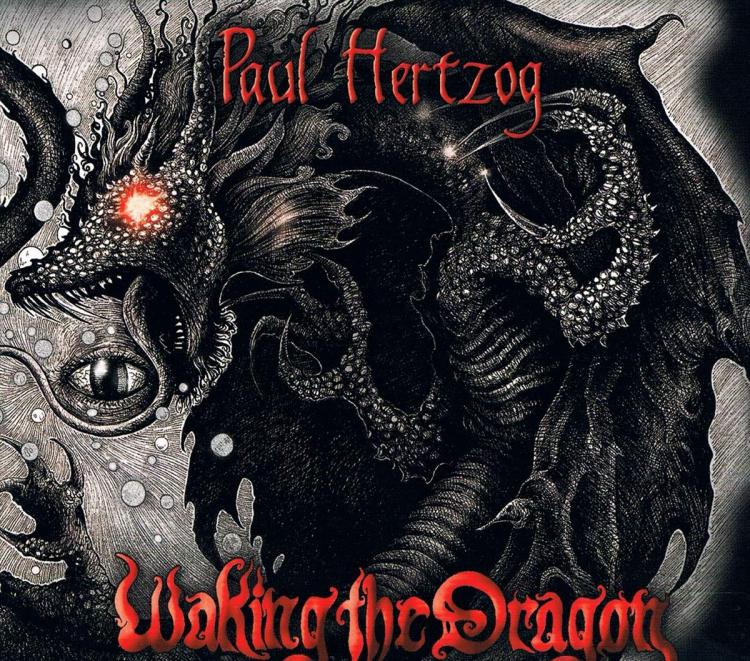Interview with Paul Hertzog, composer of cult soundtracks for «Bloodsport» and «Kickboxer»
Finding talent and style
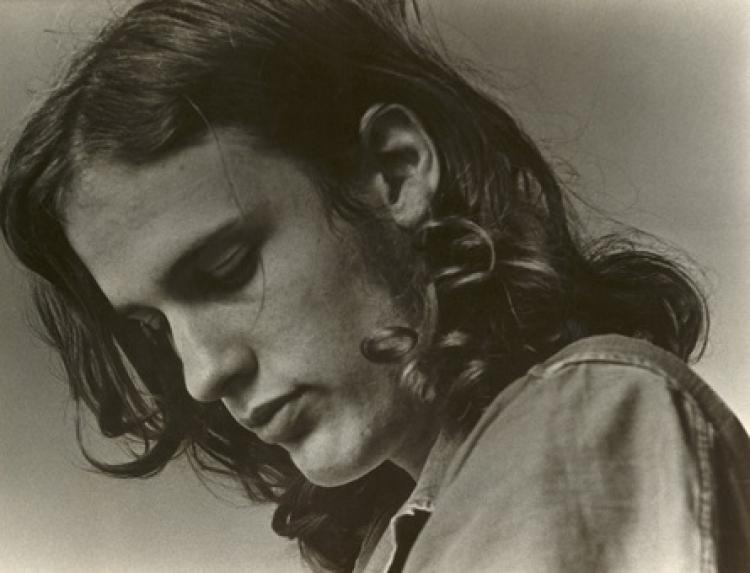
Why did you decide to try yourself as a film composer? Was it a dream you followed, a goal, or were you just drifting through life and looking what goes on?
I’m not going to pretend that there wasn’t a lot of “drifting through life” in my career. After college I had the crazy idea to become a rock musician without the slightest idea how to do so. My musical training had all been classical up to that point. I moved to New York City to start a band with a friend from college, figuring it would all work out. After a number of years of things “not working out”, I moved to LA, and by the late 70s had become involved with programming synths and producing demos for singers and songwriters along with a few live gigs here and there – anything to make a buck. I gradually started feeling that being a side musician wasn’t enough for me and that I wanted to write music myself. I didn’t feel as though song-writing was my main strength, though I had written a few songs. I wanted to write instrumental music that was not necessarily restricted by song structure and that would combine my classical influences with my rock experiences. Even though I had a vague notion of writing for film and/or TV, I really had no clue how to get started until a couple friends of mine got the job scoring a low budget film and hired me to program synths, leading ultimately to my becoming co-composer. That job introduced me to a film editor who liked my attitude and who subsequently got me the job scoring «My Chauffeur». At that point I realized that film scoring was my real talent and went back to school to study harmony, counterpoint, orchestration, and (believe it or not) film scoring. «Bloodsport» came along near the end of a year in which I was studying composition with a film composer named Don Ray, the founder of the film scoring program at UCLA Extension.
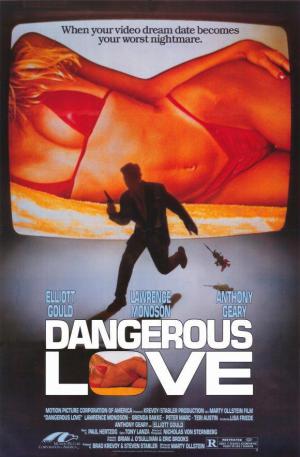
What is it like to compose music for movies? According to your stories, you mostly had to work at very short notice, and sometimes you had to redo things. Was working under such pressure comfortable for you?
I really enjoy the process of scoring to picture. I watch the scene over and over and over, improvising to it on some sort of synth sound until I start to get an idea of the type of music that fits the scene. Then, I start working out the tempos that will fit the scene and start putting down some rough ideas. Sometimes I’ll work with percussive instruments first, if the scene involves action. Other times, I’ll work with melody or chords. Gradually the entire cue will be blocked out and then I have to orchestrate with the various sounds necessary to make the piece feel complete. Since I usually had very little time back in the 80s, I had to work 16-18 hours a day, seven days a week on the films I did. Also, since my equipment was primitive, I had to do the recording in a studio, which means that if I had five weeks to produce a score, I would need to leave ten days to two weeks to record and mix the cues. The pressure was intense, but I won’t say it was uncomfortable because I was really enjoying what I did.
Some composers say making music to order for someone else leaves you no space for inspiration and you have to become sort of a musical assembly line. How do you feel about it?
I always felt that the film gave me more inspiration than I would have on my own, so I really enjoyed writing for someone else. Sure, sometimes I’d get annoyed if the producer or director asked me to redo something, but usually this pressure would inspire me to do something even better, something that both the film maker and I would like – something that would be better for the picture.
I never felt I was on an assembly line since I was the one creating the music. I wasn’t assembling predetermined parts – I was creating ALL the parts and putting them together myself.
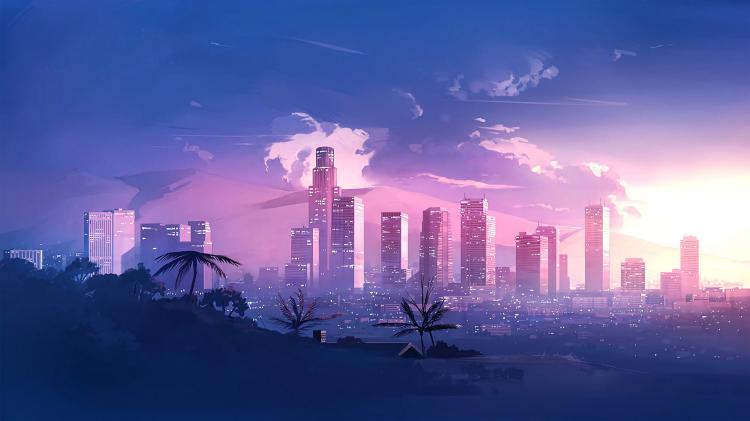
Your career mostly took place in the 80s. This decade’s culture has acquired sort of a cult status in the last ten years. Neon, cyberpunk, pixel art, sci-fi, synthwave are becoming popular again, many are filled with nostalgia.
Tell us what it was like to actually live and be creative in that period? Did it feel special, romantic maybe? Do you feel nostalgic about that time?
I will probably disappoint all the fans of the 80s when I say I found nothing romantic about that decade. I spent most of my time scared to death I wouldn’t have enough money to pay my bills and would end up on the street. I was often without work for significant stretches of time and spent plenty of my energy worried about what was going to happen as a result.
I was lucky that something always came through and that I survived somehow, but I was always living on the edge. The times when I was writing and recording and even occasionally playing live with great musicians were indeed magical times. But they were not the majority of my times. The times in between jobs were bleak and difficult. So no, I don’t feel nostalgic for the 80s.

At the same time some other artists like Brad Fiedel and Harold Faltermeyer were also composing for movies. I also really like Kevin Bassinson, especially his soundtrack for «Cyborg» with Van Damme.
Brad Fiedel mentions in his interviews that while «Terminator» characters fought machines on the screen, he had his own fight with machines in his studio. Thus, he emphasizes that making electronic music in those years was a real struggle. Was it a struggle for you too? How challenging it was to deal with the hardware and software?
I certainly had my struggles, too. I suppose the biggest struggle was that I didn’t have the ability to synch to picture and had to do a lot of math and approximation. Technology today makes composing to picture so much easier than it was for me back in the day.
I was lucky that the gear I was using back then never broke down while I was doing a picture. Some of it did need repairing from time to time, but fortunately not while I was composing and recording. Maybe that was because most of it was fairly new when I started working on «Bloodsport». I still have the instruments that I used back in the 80s, and they still all work more or less. I did have to have some repairs made recently, but these vintage instruments are still cool – and I still use them.
Many composers have their unique recognizable style. What do you think makes your music recognizable? Is it fair to say that themes of movies you composed for influenced or even formed your style?
One thing that is part of my style is the fact that I use melodies, something that seems to have gone out of style for much film music. Another element that people recognize me for is a certain Asian influence to my music, but I included that sort of flavoring only in the martial arts pictures I scored – because the films needed that flavoring. Also, as a rock musician, I have always used drums and guitars in the way that rock musicians do, even in music that isn’t at all rock music.
I would agree with you that the movies I scored helped develop the style I am best known for, but I have other styles that aren’t as well known.
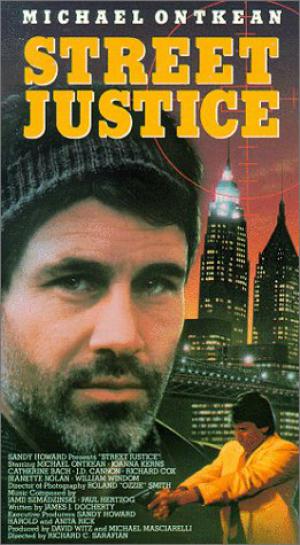
Have you ever imagined what would your music be like if you wrote it for some genre other than martial art movies?
Yes, I can see some other film genres in your track record. They were, however, if I understood it correctly, sort of artistic warm-up and there was not much music in them. Please tell us if that’s not exactly true. Unfortunately, we can’t obtain an impression of that, because we have no access to these films and even less to the soundtracks.
I have not only imagined what it would be like; I have done different genres. If you listen to the music in «Street Justice» and «Dangerous Love» you’ll hear what I do differently. Both of those scores are lengthy and include quite a few styles that fans of my martial arts film scores are not used to. In «Street Justice» we used orchestral musicians on quite a few cues as well as some jazz saxophone on others. I know these films are obscure and probably not easy to find, but I invite you to look for them and listen.
Your soundtracks include typical elements of ambient music, which was also emerging in those times. You tend to use pitch bend quite frequently in different musical themes. I would say this is quite typical for you. What do you think about that? How do you feel about ambient music?
Although I do use some of the sorts of sounds that are typical of ambient music, I don’t believe my purpose in doing so is the same as that of most ambient composers. I use these sorts of sounds to disturb, not to soothe. I sometimes use them to create unsettling psychological moods, sometimes I interrupt them with grating noises, and sometimes I leave feelings unresolved on purpose.
As for pitch bending, yes, I do that a lot. Maybe it’s another stylistic element that makes my music recognizable.
Making legendary soundtracks
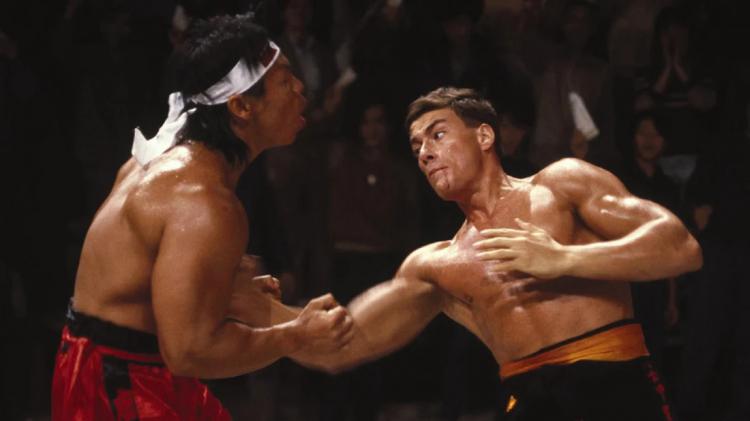
I concentrated on listening to soundtracks for «Bloodsport» and «Kickboxer» - partly because they are available to listen separately from the movie. First of all, tell us if there was any music left outside of these projects or did they use all of the material you composed for them?
There was one cue in «Bloodsport» that went unused – it was at the beginning of the first day of competition with the flags and ceremony. They used some drums the sound supervisor came up with. I thought my cue was better, but I didn’t argue because it really wasn’t very important. They used everything else. I think that in «Kickboxer» they used all the cues I had agreed upon with the producer.
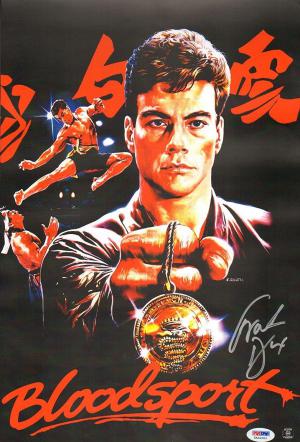
It is mentioned in your notes that you asked to take you to the film set to seek inspiration, but it never happened. To be honest, I always thought such atmospheric music can only be created by someone who observes everything first-hand.
What was your source of inspiration? Was the video material provided by the studio enough for you, or was it something else beside that? Some other composers work, maybe?
I was joking about going to Thailand and Hong Kong for «Kickboxer». I never expected to go. To be honest, I’d never really enjoy watching filming. It’s a bit like watching paint dry. Each little bit takes hours or even days to film, and very little makes sense until the editor puts it all together.
No, I do get my inspiration from watching the film. And as I already said, I watch each scene over and over and over until I find that inspiration. I might also say that sometimes my inspiration is to furnish what is NOT in the scene, to fill in emotions that are missing but that should be there.
Perhaps other composers have influenced me indirectly, but I always tried not to imitate them on purpose. I always thought the over-the-top emotions that Ennio Morricone put into his scores were really amazing, but I don’t think my music sounds like his.
I’d like to touch upon one of my favourite pieces in «Bloodsport», which is, of course, Kowloon Walled City. Tell us, how did you compose this exact theme? It really gives you shivers!
Did you use any field recordings? Different screeching and other ambience sounds can be heard in the music. Are they recorded or is everything made purely with synthesizers?
I used a really dark orchestral sample from my Ensoniq Mirage for the basic melodic and harmonic material. The screeches are actually noises my percussion player, MB Gordy, made by scraping a cymbal with a stick to achieve this really horrifying noise. Other ambient sounds I created on synths.
I should add that some of the noises were added by the post-production sound crew, and some may have even been from the location sound tracks.
As i understand, this is M.B.Gordy? Apparently a pretty well-known session percussionist who still works in the music business. Including over fairly large projects.
Yes, M.B. is still a well-known percussionist. I knew him before he was well-known, and I hired him myself.
Kowloon Walled City was demolished in 1993. After working on «Bloodsport», did you ever want to visit China and take a look at this infrastructural miracle? Have you ever been to Hong Kong or Thailand?
I have never been to Asia. Back in the 80s I couldn’t have afforded it. Now – well, maybe some day. I’d probably be more interested in Japan, though.
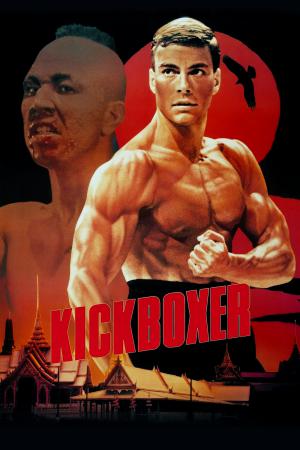
There are two very memorable themes in «Bloodsport» and «Kickboxer» which also have specific reprise in them. In «Bloodsport» case these themes are “The Walled City” (already mentioned above) and “Here For The Finale” - “Inspector, No!”. In «Kickboxer» case this is hospital theme in “To The Hospital/We’ll See” and “Hospital”. I remember that “Hospital” reprise wasn’t included into the final cut.
Did you write such tracks directly for the visual part, or did you compose the long theme first and cut it to needed pieces after? And I have to ask - just in case - maybe you have something like The Walled City (extended demo)?
I composed each of these cues separately and to picture. I didn’t have a longer piece that I later cut down. I actually wrote the “Hospital” cue on music paper so that I could write string parts later.
I’m sorry, but there’s no longer version of “The Walled City” in existence.
There are also several joint compositions of you and other musicians in «Bloodsport» soundtrack. On your website, you mention “Fight To Survive” and “On My Own - Alone” in co-authorship with Shandi Sinnamon and Stan Bush on vocals. But along with these mentioned above, there also are versions with the guy named Paul Delph on vocals. What were the duplicate versions made for?
When Stan sang for the movie, he was signed to a record deal, and his company insisted that his vocals not be used for any releases other than the film itself, so when «Cannon» put out the first version of the soundtrack in Germany, they asked Paul Delph to sing the songs. I did produce his versions.
When Perseverance Records put out their version of the sound track many years later, Stan was no longer restricted by that record company, so he came to an agreement with Perseverance allowing them to use his vocals.

There is also a track named Steal The Night. Who added it to the soundtrack?
Originally there was going to be another song in that slot, but «Cannon» wouldn’t pay for me to record it (it was written by some friends of mine), so one of the people working in the music department at «Cannon» got “Steal the Night” placed. It was written and performed by her boyfriend.
During the conversation, it becomes clear that not one composer, but a whole department is working on music. What does it look like? Does the producer tell you which musicians to attract? Or do you choose your own helpers yourself?
No one told me what musicians to use on the films I scored. I was given a flat fee, out of which I had to pay for recording studios, engineers, musicians, tape, anything else. Whatever money was left was my actual income from the film. Sometimes, that income was fairly low.
You write that you weren't paid so well for the work you did. But later, after the films had success at the box-office, you started to receive royalties. What does this process look like? Do you get a sum of money to your bank account once a month, like a salary? Is it enough to live on this money? Do they still keep coming?
The performing rights organization called BMI collects money and distributes royalties 4 times a year. I do not make enough to live on, but some money does keep coming since «Bloodsport» and «Kickboxer» remain very popular world-wide.
«Bloodsport» and «Kickboxer» soundtracks came out as albums. Was there any plan to release soundtracks to the other movies you composed for? «Breathing Fire», for example?
I own the publishing of «Breathing Fire» and would like to release the soundtrack at some point. I simply haven’t had time to do so. (Now that I am retired from my teaching job, I may have that time – we’ll see.)
I think I wrote some of my best music for «Breathing Fire» – I would like people to be able to hear it.
Did you have a chance to listen to other composers demos on «Bloodsport» and «Kickboxer» auditions? Was there someone who became famous after?
No one else auditioned for these films. In fact, I didn’t audition either. I knew the producer from having worked with him before, and he hired me without a demo. You have to realize that «Bloodsport» was a very low-budget film that «Cannon» didn’t expect to succeed. They didn’t want to pay for an established composer.
You had a conversation with Michel Qissi during «Kickboxer» filming. Did you have a chance to talk to Van Damme?
That conversation with Michel took place after the filming, during the editing process. I was at a screening room somewhere in Hollywood (don’t remember where) and ran into him after the screening of a rough edit of «Kickboxer». At that point I didn’t know he had played the part of Tong Po, and I was surprised when he told me.
I had a few polite interactions with Jean-Claude, but I never had a long conversation with him.
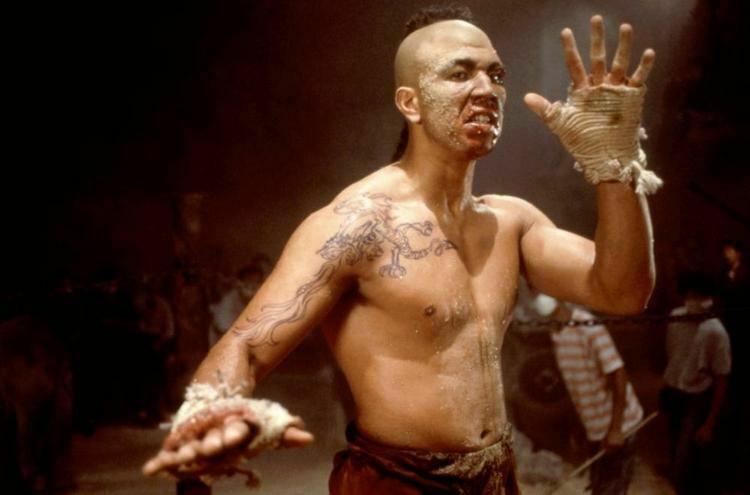
Quirky life in the film business
Before asking the next question, I’d like to mention once again that one composer whose life story is a bit similar to yours in my opinion. Brad Fiedel has quit film industry in late 90s. Despite of quite a successful career as a Hollywood composer he decided to choose a different path and took up surfing instead. 8 years later, when «Terminator 4» filming startet, they tried to involve him in the production process, but it ended kind of weird. A disgusting story, actually.
So, going back to your story. Do you feel sad about how things turned out for you? Do you regret something? Would you change something in the past, if you had a chance?
I left the film business in the early 90s. After «Kickboxer» the producer decided not to use me in his next picture (or the two after that) because he said I wasn’t big enough in the business. I didn’t believe him, but there wasn’t anything I could do.
I did do «Breathing Fire» about a year and a half later, but I spent that whole year and a half looking for work without success. My psychological health was somewhat damaged by the fact that I knew I had done good work on «Bloodsport» and «Kickboxer» yet couldn’t seem to get more work. I decided to brush off my college degree and move in a different direction, and so I became a high school teacher, a job I kept for the past 26 years until retiring this past June (2019).
This is especially weird, because the next picture was “Death Warrant”, again with Van Damme and the music of Gary Chang. Composer wrote a good intense soundtrack for this film. But I don’t have the feeling that in any case, at that time, he was a more authoritative composer than you. What to say… Let's leave this to the conscience of Mark DiSalle.
I would like to express also my confusion about the lack of demand for you in the music business. It is very surprising that after such successful projects like "Bloodsport" and "Kickboxer", other good offers didn't come to you. After all, the 90s were still filled with films on martial arts. I personally have only one explanation for this - some right people, for some unknown reason, didn't watch your films and didn't hear this music.
It was indeed weird that I couldn’t find work after Kickboxer, but life in the film business is very weird for most participants.
From what I understand, connections played an important role in engaging you in movie production process. Did you ever try sending your demos to any studios by yourself? If yes, how exactly did it go? If no, why did you decide not to seek for such opportunities? How possible it is to make it to Hollywood in present comparing to the past?
Yes, I submitted demos to agents, music supervisors, directors, whoever I could find. No good. I got all of my films through personal contact – either my own or that of friends.
As far as today goes, everything I know makes me think it’s much harder now than it was back in the 80s. But since I have no personal experience with the process today, I don’t have much to add.
You refused the last offer to work on another low budget movie. You wrote that “one low budget film was simply not enough to make me consider stepping out onto the wild blue edge again”, which apparently means you needed a more solid project with a more solid pay. However, how do you feel about it now? What kind of project would be of interest to you? Does it depend on the pay heavily? Does it have to be a full length feature, or you wouldn’t mind composing for a TV series?
At the time I turned down that particular offer, I was in my 2nd or 3rd year as a teacher. I had married and started a family. I needed health benefits and a steady paycheck. I could not afford to give up a career in teaching for financial instability. Some 24 or so years later, I think I made the correct move since I am now financially and personally stable.
I think I would prefer working on films, but I certainly wouldn’t say no to TV work.
I will reveal some vague news about my future. I am currently upgrading my music studio at home with the idea of returning in some way to the film music business. I will also let slip the fact that I am actually talking to some people about a couple of projects. I have been asked to score a martial arts film that is currently in development. If it actually gets funded and filmed, I expect to compose the music late this year or early next year. I have written some sample cues that the director is very pleased with. However, I am not at liberty to provide any details at this point.
And if nothing actually comes my way, I’m OK. I will continue to write music and release it on my own.
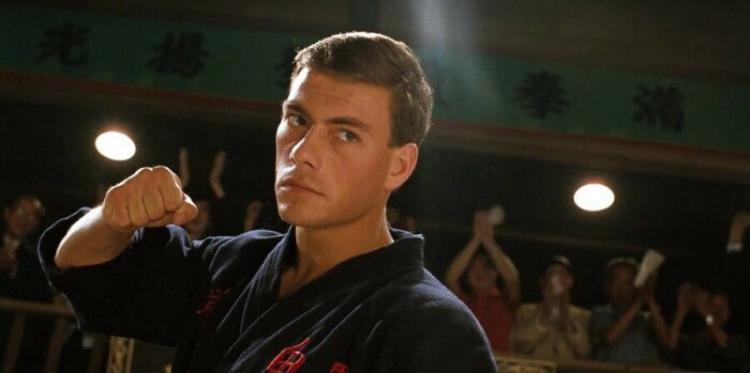
Our heroes
A whole generation grew up watching movies like «Bloodsport» and «Kickboxer». I can’t tell how popular these films are in the West, but here in the post-Soviet area these are iconic in its true sense. Our rooms were wall-to-wall covered with related posters, we watched the VHS tapes over and over again. When I decided I want to listen to your music apart from the movie I had to record several tracks onto a cassette tape using a microphone. Internet hasn’t been spread widely in those years.
Did these movies influence you as a viewer? Do you watch these films over again occasionally?
If one of my movies is on TV and I run across it by accident, I might watch a few minutes here or there, but for the most part I don’t watch them. I think they’re much better seen on a big screen in a theater with a good sound system. And no, I don’t think they have influenced me as a viewer.
And which ones influenced? Van Damme was and remains the hero of our childhood. Who's your hero?
Don’t think I have heroes from films.
I'm sorry that I am so persistent in this matter, but i would like to understand your emotional attitude. You like to write music for films, but it seems that you are rather indifferent to the films themselves. Maybe you like reading, and there are some of your heroes? I’m trying to understand what kind of image in art inspires you, as an observer.
When I say I don’t have heroes from films, I mean that the characters do not become my heroes. I suppose I do have heroes that are involved in the making of films, director/writers such as Neill Blomkamp and Alejandro Gonzales Inarritu or film composers who have influenced me like Ennio Morricone, Jerry Goldsmith, and John Williams. I also have heroes from all aspects of real life, as diverse as Nelson Mandela, Bela Bartok, Vincent Van Gogh, Ursula LeGuin, along with many others. Perhaps I make heroes out of those who create characters rather than of the characters themselves.
During the most intense periods of your work in movie industry, while «Bloodsport» and «Kickboxer» were in theaters, was there any media attention attracted to your person? Did you take part in any press conferences, presentations? Did you have any feeling that you’ve become famous overnight?
I didn’t ever get asked to have any involvement with media after those films. Nobody ever expected them to do very much, to be honest. I find I’m something of a cult figure today, but that happened well after the fact.
Do you keep track of what’s going on in film making industry and what kind of music is created by today’s composers? Despite some interesting works it sometimes feels like we’ve left something important in 80-90s. I think there is much less uniqueness and originality in today’s soundtracks.
I listen to the music in films when I watch films. I can’t think of too many scores that have impressed me lately, but I don’t watch all the new releases any more.
I do watch a lot of British TV shows, and I have been impressed by a number of young composers in England. However, I tend to agree with you that many of today’s soundtracks all sound the same.
If you had a chance, what movies - both in past and present - you’d want to write music for?
I don’t think I can answer this question. Most of my favorite films have scores I love, scores I couldn’t think of replacing.
By the way, in the 90s «Kickboxer» had as many as 4 sequels. The franchise got rebooted recently, two movies have already come out, the third one is planned. Van Damme is now playing the main character’s mentor.
I understand this looks weird, to say the least. And those sequels filmed in the 90s are simply of poor quality. However, did you watch these movies? Do I understand correctly that they didn’t offer you to compose for these films?
No one ever contacted me to score those sequels. I have never seen them.
I started watching the most recent sequel, the one with Van Damme in it, but I shut it off after a few minutes because I simply didn’t like it.
However, I recently watched «Jean-Claude van Johnson» and thought it was great. Jean-Claude has a very engaging personality on screen and is not afraid to make fun of himself.
Hard and soft
What musical instruments can you play?
Piano was my first instrument, and now I play anything with a keyboard. When I was in high school and college, I played bassoon in various bands and orchestras. I gave that up after college.
What does your studio consist of? What musical instruments and equipment is there? What kind of software do you use?
As I’ve already said, I’m in the process of upgrading. New computer, new sound system, new software. I’ve been using rather primitive gear for the last number of years, mainly because I had to consider music as a hobby during my teaching career and didn’t feel as though I could sink my hard-earned money into my hobby.
I still have my old keyboards: Yamaha DX-7 and TX-7, Oberheim OB8, Roland D-50, Ensoniq Mirage, E-mu Proteus 1, Alesis HR-16. I also added a virtual sampler, the E-mu Emulator X, a few years ago when I started recording my solo project “Freeing the Waters.” I love a lot of the EX sounds. You can hear many of them on my second solo project “Waking the Dragon.”
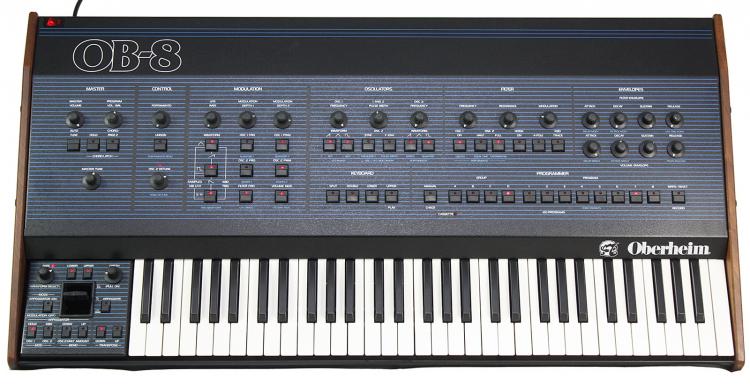
Outside the movies
What did you play in bands, before getting into the film industry? Do any records of the bands you played in still exist?
I was a keyboard player. A few recordings that I played on are available on Youtube.
I recorded an album with Shandi and also played some keyboards and arranged horns on the song “He’s a Dream” that Shandi contributed to the film «Flash Dance». I worked with a very fine songwriter named Tonio K on his album “Amerika.” You can hear some work I did with Iain Matthews on an lp entitled “Walking a Changing Line.” On that lp Iain used a number of LA keyboard players to arrange the songs, and I arranged a couple of them. If you look for a song written and performed by Dirk Hamilton entitled “New Dark Age” you’ll also hear some of my keyboard playing – and you’ll also hear an amazing songwriter/singer who has never received adequate recognition. Oh, and when I was in an oldies band called the Monte Carlos, we recorded a live album with Darlene Love. I don’t know if it’s out there anywhere.
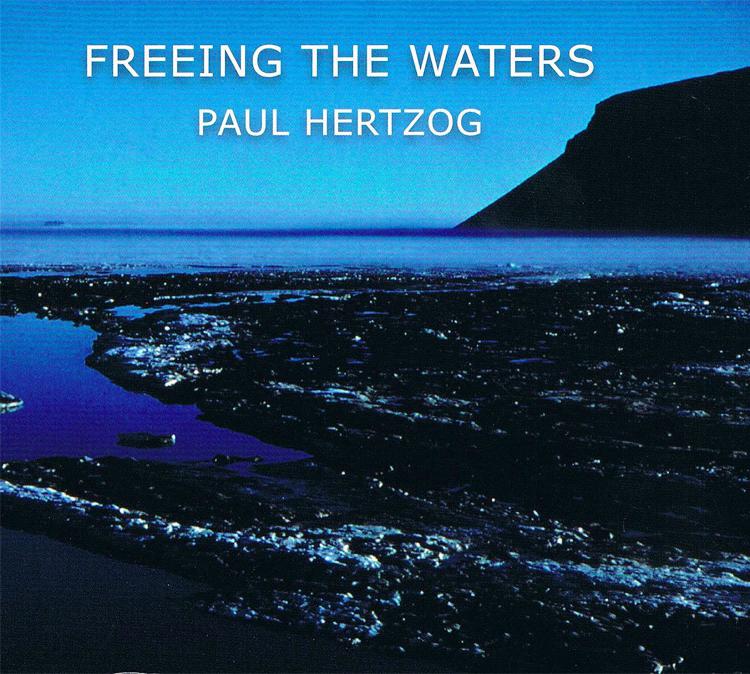
Do you stay in touch with any of those people you happened to work with in movie industry 30 years ago?
I lost touch with all of the film people I worked with. I am “friends” now with a few on Facebook, but we don’t really have relationships. I am in touch with a few of the musicians I worked with in the old days, but I’ve lost touch with most of them, too. It’s interesting to note that most of my “friends” in the business stopped communicating with me altogether once I became a teacher – their choice, not mine.
Have you ever been to Europe or Russia? The Baltic States, maybe?
I first was in Europe when I spent part of my junior year in university studying in France. Some years later one of my bands from New York played in Germany, Iceland, and Greenland (of all places – in fact the cover of “Freeing the Waters” is a photo I took in Greenland). I didn’t make it to Europe again until I met and married my wife, who is English. We’ve been to England, France, and Germany a number of times since our marriage. I’m sorry, but the farthest east I’ve been is Berlin. Maybe someday.
You have two solo albums. These are a truly nostalgic experience for your fans, an opportunity to go back into the childhood at least for a while.
Do you think of writing more music in future? I saw your post that you finished with pedagogy and now you can concentrate on music. Have you already decided what exactly it will be expressed in?
I already mentioned that there may be some film projects in my future. Once I get my upgraded studio in working order, I’ll start writing some preliminary pieces for these projects. If those projects never see the light of day, I’ll certainly be able to release any preliminary compositions myself. We shall see in about a year or so.
Tell a little about your teaching practice. What is this all about? How do students feel about learning from a cult composer? Why you quit?
I’m old enough to quit and live on my pension, so I retired. You may have read on my website that my university degree was in English, so mostly I taught English. I was able to teach one music theory class every year for the past sixteen years, which I really enjoyed. It was a college-level theory course which culminated in a national examination in America’s Advanced Placement system. I’m very proud to say that nearly all my students over the years passed this exam.
As to how they felt about my past, most of them didn’t know about it. The ones who did were impressed, I suppose, but once they had to deal with me every day for a few months, I suppose reality set in. I was a fairly demanding teacher in that I expected my students to work hard and learn the material I presented. Nonetheless, I tried to maintain a sense of humor in my classroom that many, though not all, of my students found amusing.
«Bloodsport» was on the big screen in 2016. You were there, saw Frank Dux.
In 2012, Sheldon Lettich, who wrote the script for «Bloodsport» on the basis of Dux’s biography, said that everything Dux told him about the secret tournament and his victories, turned out to be a lie. How do you feel about this?
I wasn’t particularly worried about that one way or another. I dealt with what was on the screen and didn’t really care if it was a true story or not. And I like Frank.
We’d like to know if someone offered you to write soundtrack for the game. Do you like this idea? Do you play some games? If yes, which games do you like and which music do you remember?
I didn’t grow up with video games, so I never got into playing them. My daughter is a big fan of games and game music, but not too much of that music is my cup of tea, and honestly I couldn’t tell you which game is which. I have liked some of the more orchestral styles of game music, but again I couldn’t tell you which game they came from. And would I contribute music to a game myself? If someone wanted to use something in my style, sure, though I would probably have to get technical assistance in how to put it together. All the looping that has to be set up would be new to me.
Do you have any other pages in the web, besides the site and facebook?
No.
Finally, can you give any advice to musicians who are just starting out?
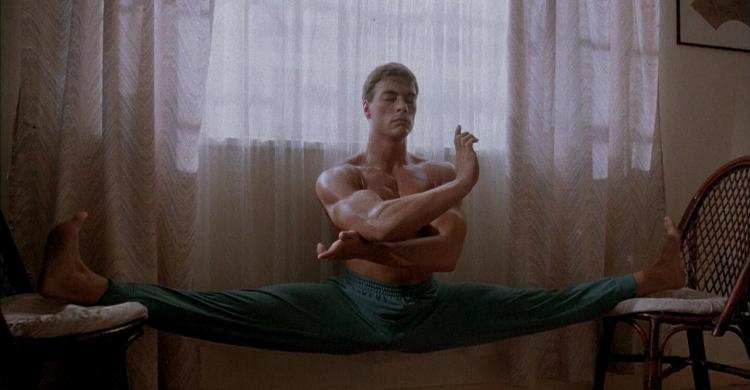
If anyone asks me if they should go into the music business, I almost always say no. Someone who is going to make it in the business is NOT going to ask for advice. They’re simply going to do it. I’ve had a few music students who have pursued musical careers, and they didn’t ask for advice. They just did it – and I knew they would.
But it’s a tough business to succeed in. I met composers back in the day who had PhDs in composition that were asking me to help them get work – as if I had any extra work myself to give away. No, it’s a difficult career choice.
You know, I think I would advise potential musicians to do something I didn’t do – study business and law as well as music. Learn how publishing works and learn how to read a contract. Also, if you’re not good with interpersonal relationships, it probably doesn’t matter how good a musician or composer you are.
What is Dim Mak?
Interview was conducted by Flamberg.

